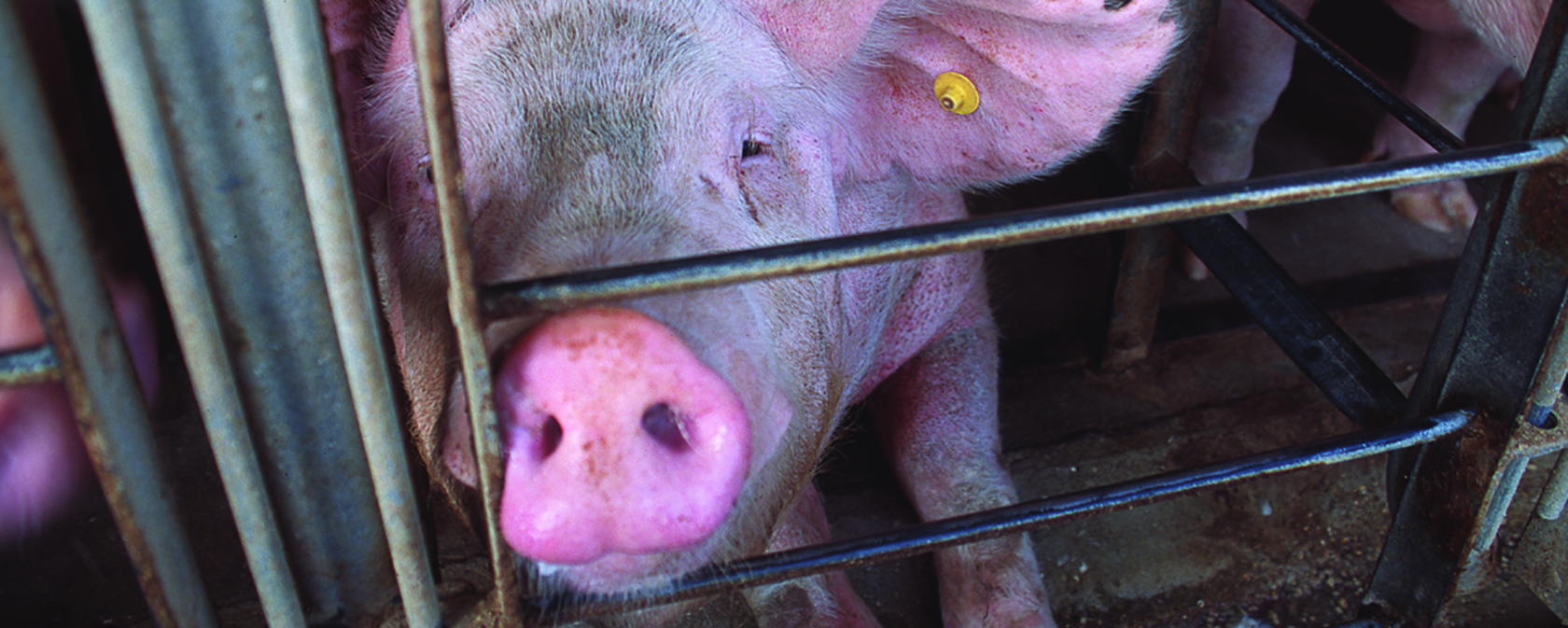By Sara Amundson and Kitty Block
In the battle over farm animal welfare standards playing out in Congress, a number of producers associated with the National Pork Producers Council have made misleading claims about the effects Proposition 12 and other state-level public health and animal welfare laws have on family farmers. So has the Secretary of Agriculture. But when farmers speak for themselves, they tell a different story, and it’s one of strong support for these humane laws and standards.
When Congress returns in mid-November for the "lame duck" session following the Nov. 5 election, we will continue our work to uphold these critical state laws and point out the fallacies in opponents’ claims.
We’re grateful to all of those who have stood with us in the campaign to pass and sustain humane-minded laws in more than a dozen states. These laws are under attack from a complacent and lazy segment of the pork industry, led by the NPCC, which just doesn’t want to let go of cruel confinement systems such as the gestation crate that deny mother pigs their most basic freedoms. What this foot-dragging faction does in opposing humane and public health standards, with its army of paid lobbyists, litigators and public relations consultants, it does in the interest of pork profits.
Farmers and producers who have rejected agribusiness cruelty and embraced higher welfare standards play a vital role in this important battle. Some of these change-makers are large players. For example, Perdue Premium Meat Company’s Niman Ranch filed a legal brief in the case NPPC lost in the U.S. Supreme Court, and filed another one just this week in Massachusetts, making clear that higher welfare standards for pigs simply make good sense.
We’re pleased with such interventions, just as we’re truly heartened by the fact that so many of the most vocal defenders of laws like Proposition 12 are small-scale farmers. They stand apart, and are quite different from, the self-serving and deceitful corporate pig factory operations that have concentrated their full force toward the destruction of these laws.
To their credit, these forward-thinking farmers recognize that more humane treatment of animals is not just a moral imperative but a clear public demand. Throughout the current session of Congress, a determined minority has been attempting to add agribusiness-backed language into the federal Farm Bill (which sets the government’s food and agricultural policy) to nullify Prop 12 (a landmark law approved by California in 2018, that protects pregnant pigs, egg-laying hens and calves raised for veal and restricts the sale of cruel products).
In community after community, farmers have amplified their voices and their impact, publishing dozens of opinion pieces and letters-to-the-editor and granting interviews to educate their neighbors and the wider public about the NPCC’s disingenuous campaign to destroy state laws regulating animal welfare and public health that millions of Americans have supported in red, blue and purple states.
October has been a banner month for the farmers’ efforts. In an opinion piece in the Detroit News, for example, Patrick Madden, a Michigan farmer, praised Senate Agriculture Committee chair Debbie Stabenow for her stand against the NPCC’s gambit in the Congress, noting that the House Agriculture Committee’s version of the Farm Bill was a threat to farmers across the country. “It undermines existing animal welfare regulations,” Madden wrote. “Nullifying state laws would not only roll back progress on animal welfare, but it would also severely hurt rural economies and farmers who have made financial commitments to meet state standards.”
For his part, Iowa farmer Ron Mardesen told Sentient Media that producers “have already made the commitment, already made the investment, already made the transition to gestation-crate-free systems…and that stool is going to be kicked right out from underneath them.”
Pennsylvania's Brent Hershey, an early adopter of alternatives to gestation crates told Lancaster Farming of conversations he began to have with other producers in the late 1990s. “We started to realize we couldn’t defend it,” he reflected. In his view, the passage of Prop 12 reflected the momentum of a trend that was already evident. He calls gestation crates “a relic of the past” and estimates that over 40% of Pennsylvania pork producers are already compliant with Prop 12. Now, other farmers from around the country consult with him on their own efforts to move away from gestation crates.
These are the voices of real farmers, not giant agribusiness corporations masquerading as farmers, and we know they will continue to speak out in 2025, just as we ourselves will. Like us, they want the federal government to support the autonomy of states to regulate issues related to animal welfare and food safety within their own borders. That’s what millions of Americans want to see, too.
Certainly, in our work on behalf of animals raised for food, we must confront a harsh reality: They suffer tremendously in intensive confinement, and their numbers continue to rise, with over 92 billion animals killed annually worldwide. In the face of this challenge, we have made extraordinary progress in public policy, corporate reform and consumer education. In these and other channels, we continue to advance the case for plant-based eating, understanding that a reduction in the consumption of animal products directly contributes to a reduction of animals’ suffering. In pursuit of this priority, we have successfully persuaded institutions, municipalities, schools, companies, restaurants and food service and hospitality industries around the world to offer more plant-based options.
At the same time, however, billions of animals continue to live in misery because of such confinement. In our ongoing efforts to mitigate that suffering, small-scale farmers and producers are among our strongest allies. We’re proud to have them stand with us, and we’re proud to stand with them.
Kitty Block is CEO of the Humane Society of the United States.




